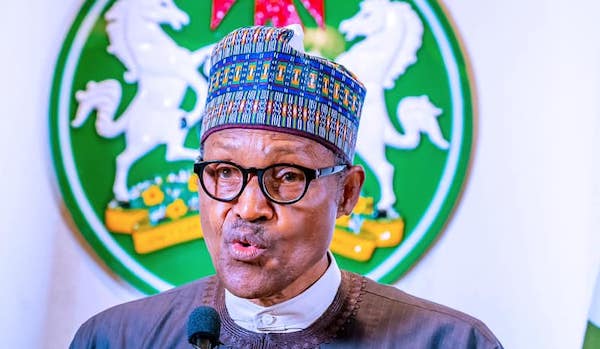Business
Nigeria’s external reserves enough to finance 7 months of import commitments –Buhari

President Muhammadu Buhari has said the country’s external reserves, which expanded from $33.42 billion on 29th April 2020 to around $36 billion in May 2020, is sufficient to finance seven months of import commitments.
He made the declaration during a speech he delivered in Abuja on Friday morning in commemoration of the 2020 Democracy Day celebration.
According to the president, the monetary authorities made efforts to grow the external reserves, which led to improved liquidity in the foreign exchange market.
Nigeria’s external reserves had fallen considerably from the opening balance of $38.59 billion at the beginning of January to $33.42 billion towards the end of April, shedding about $5.17 billion on the account of the record crash in the price of oil, which accounts for more than 90 per cent of the country’s foreign exchange earnings.
The improvement in the external reserves’ balance between 29th April and the end of May had been driven largely by the disbursement of a $3.46 billion Rapid Finance Instrument Facility to Nigeria by the International Monetary Fund.
Buhari further stated in the address that the country had seen 11 straight quarters of Gross Domestic Product (GDP) growth since coming out of recession.
He noted that the GDP grew from 1.91 per cent in 2018 to 2.27 per cent in 2019 but slumped to 1.87 in the first quarter of this year as a result of global economic downturn triggered by the coronavirus pandemic.
“The Presidential Fertilizer Initiative programme continues to deliver significant quantities of affordable and high-quality fertilizers to our farmers.
Read also: External reserves rise by $734m in one week
“This initiative has also revived 31 blending plants and created a significant number of direct and indirect jobs across the value chain.
“Government is also revamping the cotton, textile and garment sector via a CBN Textile Revival Intervention Fund that would considerably reduce foreign exchange spent on cotton and other textile imports,” Buhari said.
He extolled the “Grow What We Eat” and “Eat What We Grow” programme, which is part of the food security initiative, and expressed satisfaction at the increasing involvement of Nigerians in the agriculture and agri-business sector.
The president disclosed that government had deployed 5,000 Agro-Rangers and hired 30,289 employees in para-military agencies.
He affirmed government’s success at developing non-oil exports especially the increase of revenue from cocoa and sesame seed from $79.4 million to $153 million in the last one year.
“Africa presents a huge opportunity for our export base diversification and we are developing our strategy to grow intra-Africa trade through the Africa Continental Free Trade Area Agreement.
“Nigeria has risen by 25 places on the World Bank’s Ease of Doing Business ranking from 146th to 131st and is now rated as one of the top ten reforming countries.
“This development is due to the Visa on Arrival policy, consistent promotion of initiatives that expand facilities available to Micro Small and Medium Scale Enterprises, robust electronic registration and payment system seamless processing of business registration and reduction of cost of registering business by 50%. We are confident that on-going efforts would result in further improvement of this rating.”
He mentioned the strides made in the mining sector to include the planned revival of the Ajaokuta Steel Plant based on government-to-government financing and a public-private sector financing, and the harnessing of the supply value chain in gold production through foreign and domestic investments as well as participation of small-scale miners.
Buhari assured that government’s deal with Siemens would enhance the transmission and distribution of 11,000 megawatts of electricity by 2023 to meet the electricity needs of Nigeria.
According to him, 412 kilometres (representing 64 per cent) out of the 643 kilometres targeted through the SUKUK-Funded Road Projects have been completed while the Presidential Infrastructure Development Fund projects are also progressing.
“We are extending and upgrading our railway network too. We are introducing more locomotives, coaches and wagons for the Abuja-Kaduna Rail Line.
The Central Ajaokuta – Itakpe – Warri Line has been completed and is being extended from Itakpe to Abuja on one end and from Warri Town to Warri Port on the other.
The Lagos-Ibadan Rail Line is 90% completed and would be extended to the Lagos Port which would help address the long-standing gridlock at the Apapa port,” he said.
Join the conversation
Support Ripples Nigeria, hold up solutions journalism
Balanced, fearless journalism driven by data comes at huge financial costs.
As a media platform, we hold leadership accountable and will not trade the right to press freedom and free speech for a piece of cake.
If you like what we do, and are ready to uphold solutions journalism, kindly donate to the Ripples Nigeria cause.
Your support would help to ensure that citizens and institutions continue to have free access to credible and reliable information for societal development.




















